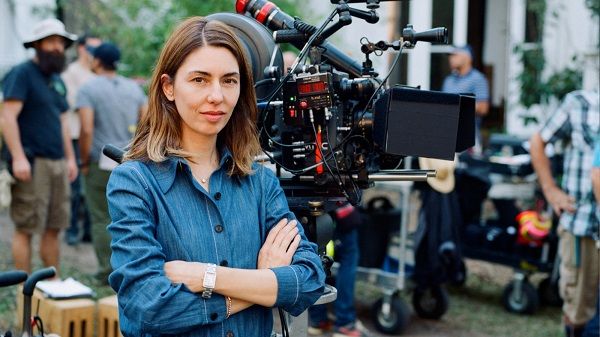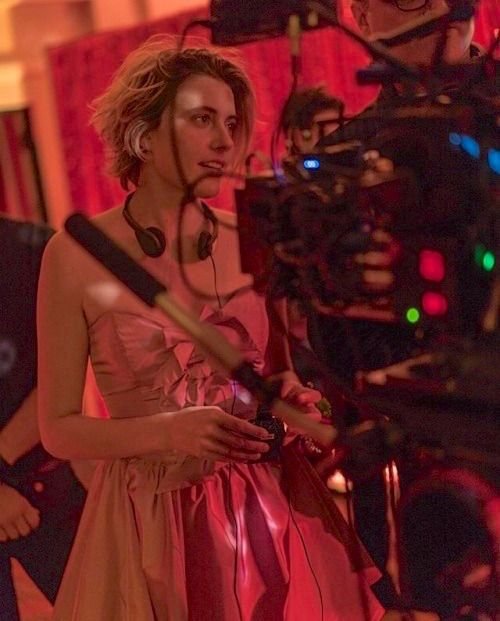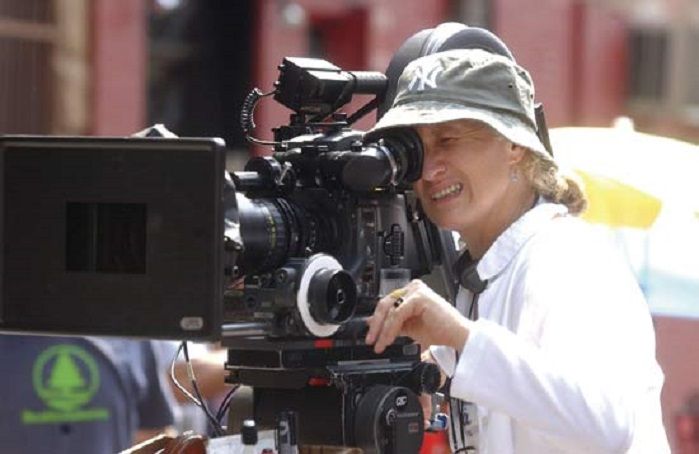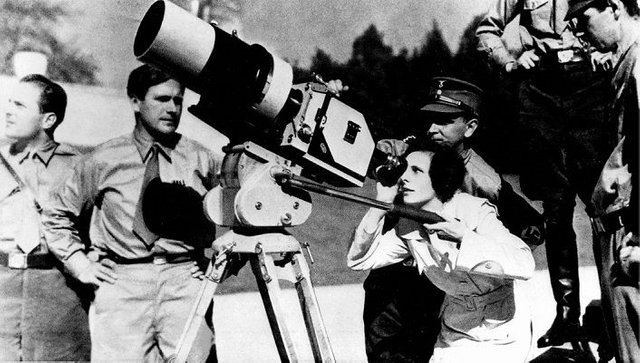The female directors in cinema
Among the names of successful directors, there are mainly male names - everyone knows Spielberg, Scorsese or Coppola. On the other hand, female directors who have achieved international success in cinema are actually a limited number, but that's why their successes stand out even brighter. Here are the most successful representatives of this creative profession:
Catherine Ann Bigelow
Bigelow's name can not be missed when it comes to female directors because her successes are really serious. She began her career in the 1980s, William Defoe's first major role in her "Loveless" film in 1981. Then in her action series "Blue Steel", "Point Break" and "Strange Days" actors such as Keanu Reeves and Jamie Lee Curtis. "Point Break" also remains Bigelow's most successful box office film, and in 2008 "The Hurt Locker" did not make that much money, but helped her to be into history as the first Oscar winner to direct. Bigelow films most often present a unique view of the clash of morals and interests in a world that is so strenuous that it easily turns into hell. Maybe because of this, the American Critics Guild gives her a prize for her next film, Zero Dark Thirty, for the 10-year hunt of Osama bin Laden, and in 2017 Bigelow's Detroit movie, whose storyline unfolds in an atmosphere of rebellion in the American city in 1967.

Sofia Coppola
The daughter of Hollywood legend Francis Ford Coppola makes her debut in the movie with a small role in "The Godfather." She later has a supporting role in "Peggy Sue Got Married" and "The Godfather: Part III," but her performance was not well received by audiences and critics, which is why Coppola is heading to directing, her directorial debut with The Virgin Suicides in 1999, and in 2003, she has glorify her family after her film "Lost in Translation" has won the prizes, and she has received an Oscar for directing, and her career continues with a range of diverse films - from Maria Antoinette's life to a Christmas movie with Bill Murray. 2017 Sofia Coppola became the second woman and the first American to win the Cannes Film Direction Award, winning The Beguiled Prize with Nicole Kidman and Colin Farrell.
Lina Wertmüller
Lara Wermühleler's aristocratic father wants her to become a lawyer - a profession that gives the high status of the Swiss family. But instead, his temperamental daughter begins to tour Europe with a puppet theater. Wertmühler's path to the director's chair is still a theater career as an actress, director and screenwriter. In time, Vermüller enters the cinema and meets the actor Marcello Mastroiani, as well as with the director Federico Feleini, who offers her a job as a helper director in his classical "8½" debut as "I Basilischi" in 1963. The 70's are Lina Wertmüller's strongest decade. Most of her films from that period featured Italian actor Giancarlo Giannini. His Seven Beauties (Pasqualino Settebellezze) won four Oscar nominations and achieved international success in 1975. The most important thing is that Lina became the first woman ever to be nominated for Oscar directing Main focus of Lena Wertmüller's films is on the life of the marginalized, outraged, crowded societies, and her films have a distinct leftist and feminist flavor, and it is also known for the unusually long titles of her films, which have to be curtailed for cinema posters.

Greta Gerwig
Greta Gerwig started her career as an actress in several films that are one of the most bizarre genres of cinema. "Mumblecore" is an independent, low-budget cinema that focuses more on dialogue than on plot, and often relies on improvisations that bring cinema to life, and later on, her name is known as Noah Baumbaich's co-production and her involvement in films like " Greenberg "in 2010. and "Frances Ha" in 2012, for which she received a Golden Globe nomination, and in 2017, Gerwig replaced the acting profession with that of a director and screenwriter when she won a Golden Globe for his film Lady Bird. For the same film, she received Oscar nominations for directing and screenplay.

Jane Campion
Writer, producer and director. Jane Campion is the daughter of artists, so it is no wonder that in the 1970s she left her native New Zealand to study at London's Theatrical School and then graduate from Sydney's visual arts. Campion began her career with a short film "Peel" in 1982 and won the Cannes Prize in this category, and seven years later she also entered the feature film with her debut film "Sweetie". The greatest international success Jane Campion has with The Piano in 1994 - her film brings the Best Director Award for Best Screenplay to Cannes and Oscar, and Keppin receives an Academy Award for Best Director, and in 2016 she receives a New Zealand Order of Merit.
Andrea Arnold
The British breakthrough in show business as a child with roles in TV series, but dropped out in the 1990s and began studying film direction. This was obviously the right decision because it has since been successful in this profession. Andrea Arnold won an Oscar for her short film "Wasp" in 2004, and then became more famous with the "Red Road", which is in the tradition of Von Trier, and won the 2006 Jury Award at the Cannes Film Festival. For Arnold, it is a tradition to win this prize because she takes it twice more - for "Fish Tank" in 2009 and for "American Honey" in 2016.

Lenny Riefenstahl
The story of Riefenstahl is undoubtedly the most interesting and controversial in this ranking. Lenny Riefenstahl performs dance performances from a young age in Europe. She then began shooting in the cinema and starring in several successful productions between 1925 and 1929, and in 1932 she directed her first film, "Das Blaue Licht." Despite the undisputed talent of artist Lenny Riefenstahl, her personality remains more than German filmmaker Adolf Hitler was her great admirer since the beginning of her film career and invited her to direct a film about the great Nazi rally in Nuremberg, and in 1933 the film "Triumph des Willens" was born. "Triumph des Willens" is an influential film that has become a cornerstone of propaganda cinema and the support of art for the Nazi regime, and in time Riefenstahl falls into the ranks of senior party members and develops true admiration for the Führer, perhaps unusually mutual Two more films have appeared in the world. "Tag der Freiheit: Unsere Wehrmacht" from 1935. is the power of the German army, and Olympia in 1936 is the real classic. The film was filmed on the occasion of the Olympics in Germany in 1936 and contains innovations that have not been seen so far, which set the direction of development for the cinema and sports television for decades Olympia is one of the most famous titles of his time, and director Leni Riefentshall becomes a celebrity and cultural flagship of Nazism around the world.
Riefenstahl hardly comes to the truth about Hitler's tyrannical regime because he has been persuaded in his motives for years. She went as a war correspondent to the Wehrmacht during the invasion of Poland in 1939. and is almost shot by his own soldiers when he tries to prevent a mass shootout in a village. However, she attended the military parade of the Germans in occupied Warsaw. Although Riefenstahl itself always denies ownership of the regime's actions and claims she did not know about the Holocaust, she was certainly very close to the ruling party. Hitler personally ordered to be given money to shoot "Tiefland." The Spaniards of the film were played by gypsies from the concentration camps that were taken back to the end of the shootings, "Tiefland" was completed in 1944. - the same year that Lenny-Heinz's brother was killed on the Eastern Front. The film was not projected in the next ten years. After the end of the war, Lenny failed to implement a single project. She became known as the director of Hitler's threads, her only chance was to collaborate with her admirer Jean Cocte who died in 1963. She then left Africa where she shot a film about the local tribes, but the production was not completed because of the worsened political and meteorological situation. Riefenstahl itself almost dies in a traffic accident and falls into a coma. Lenny Riefenstahl died of cancer in 2003. at the age of 101.
Another female directors I forget, and people remind me about them in the comment section:
then what about Lynne Ramsay, Kelly Reichardt and Claire Denis? what do you think about them? are not interested in them?
Lynne Ramsay - I just forget, you are totally right about her! "We Need to Talk About Kevin" is one of my favorite movies about evil teenagers and I put it in one place with Gus Van Sant's"Elephant", and Ilmar Raag's "The Class"
Kelly Reichardt - I really want to see her movies like "Wendy and Lucy" but it is really hard to find it.
About Claire Denis I really have not see her movies and I will fix this mistake.
Thank you for the comment! :)
Humbly I dare to suggest adding Fina Torres, the winner in 1985 of the Cámera d'Or prize at the Cannes Film Festival with her film Oriana.
If i can find this movie, I will watch it! Thanks! :)
Got myself a list for night time movie watching :) Love Frances Ha and Greta Gerwig but don't know anyone else on this list!
I can recommend Mira Nair as well. She's not as well known as the others on the list but is best known for The Reluctant Fundamentalist and Salaam Bombay is one of my favourites.
Thank you for mentioning her. Definitely I will watch the movie these days. :)
thanks for sharing. Very interesting. I didn't know there were female Directors, especially since they got an Oscar.
Hehe :D Well.... they do that too :D
now I know more))))))))
Point break was amazing movie
Nice picture. You are talking right
Thanks
I like.Good post.
thanks.
Nice article
Thank you
You got a 8.65% upvote from @postpromoter courtesy of @godflesh!
Want to promote your posts too? Check out the Steem Bot Tracker website for more info. If you would like to support the development of @postpromoter and the bot tracker please vote for @yabapmatt for witness!
thanks for the information, so in here women can give some contribution on directors in cinema ^^